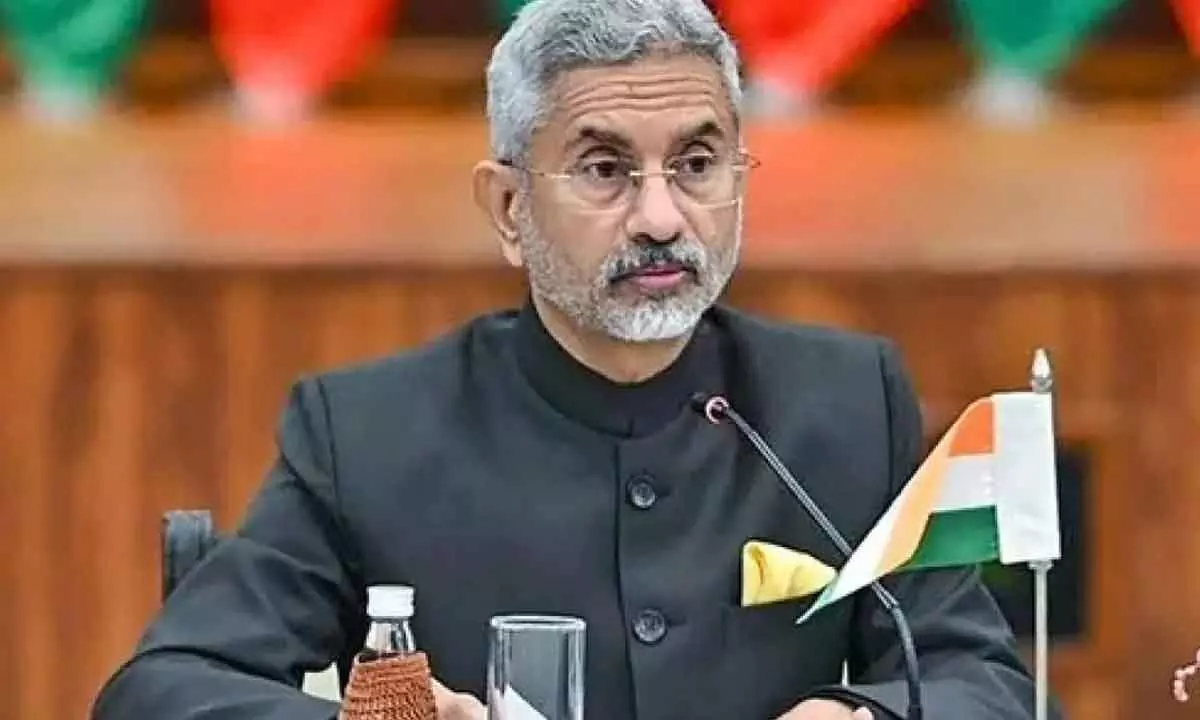Live
- Rachakonda police issues prohibitory orders in view of TGPSC tests
- SBI rescues sr citizen from `46L cyber fraud
- 12-yr-old dies of electrocution
- Installation of smart meters opposed
- State Cabinet expansion in focus as CM leaves for Delhi
- Need to reintroduce country’s forgotten pride: Bhagwat
- Pant shatters Iyer's IPL auction record, sold to Super Giants for Rs 27 cr
- Yuva Sangeetha Sammelanam held
- Dharani proves a bane for 25K families across State
- Reckless, Dangerous Arms Race
Just In
G20 New Delhi Declaration: Uniting Amid Ukraine Conflict Critiques And Shifting Diplomacy


- Explore the intricacies of the G20's New Delhi Declaration, hailed as a historic consensus on Ukraine, yet facing scrutiny for its wording.
- Learn about India's diplomatic victory, differing perspectives, and Ukraine's response to the declaration's notable omissions.
India's Foreign Minister, S. Jaishankar, discussed the New Delhi G20 Leadership Declaration, which called for peace in Ukraine. While the declaration's unanimous adoption was celebrated as 'historic,' it faced criticism for its silence on Russia and its reference to the war 'in Ukraine' instead of 'against Ukraine.'
The New Delhi Declaration stands as a significant achievement during India's G20 presidency, highlighting the ability of member nations to find common ground despite mounting tensions and differing perspectives on the Ukraine conflict.
During a press briefing on the G20 Summit outcomes, Jaishankar emphasized that while the G20 is not designed to resolve geopolitical and security issues, leaders acknowledged their potential far-reaching impacts on the global economy.
Regarding the shift in language referring to the Ukraine conflict in the New Delhi Declaration compared to the G20's previous stance in the Bali document, Jaishankar explained, "Bali was Bali, New Delhi is Delhi. Many things have happened since the Bali Declaration. One should not view this in a dogmatic manner. The New Delhi Declaration addresses the current situation and concerns, just as the Bali Declaration addressed the concerns of its time."
The G20 Bali Leaders' Declaration from the previous year expressed strong condemnation of the Russian aggression against Ukraine and called for Russia's unconditional withdrawal from Ukrainian territory.
Responding to the question of how challenging it was to reach a consensus on the Ukraine conflict within the 83-paragraph declaration, Jaishankar noted that substantial time was devoted to geopolitical issues, particularly related to the war in Ukraine, due to the ongoing conflict and differing viewpoints.
When asked which countries played a key role in forging consensus on the Ukraine conflict, Jaishankar stated, "Actually... Everybody helped. Everybody came together to forge a consensus, but emerging markets took a particular lead on this, and many of us have a strong history of working together. Bear in mind that actually, you have four developing countries in succession for the G20 presidency...Indonesia, us, Brazil, and South Africa."
In response to the Delhi Declaration, Ukraine's foreign ministry expressed disappointment, pointing out that it didn't mention Russia and making corrections to reflect Ukraine's stance as a victim of unprovoked Russian aggression.

© 2024 Hyderabad Media House Limited/The Hans India. All rights reserved. Powered by hocalwire.com






